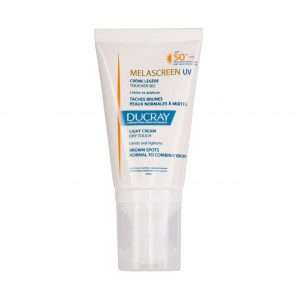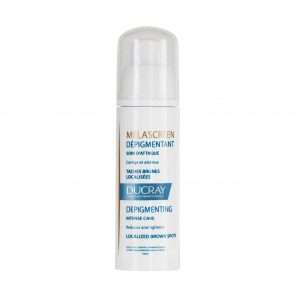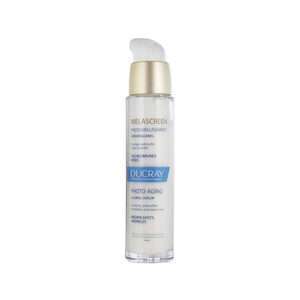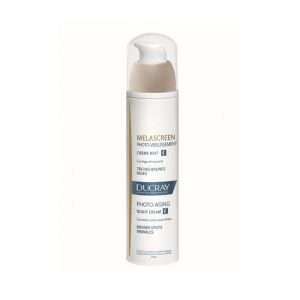
While the warmer months are known to promote pigmentation, facial discoloration is one of those annoying skin problems that can occur at any time of the year. Fortunately, help is at hand, as there are many options to combat stubborn dark spots and restore your skin’s glow. To help you find the best treatment for pigmentation on the face, we reached out to the dermatologist and cosmetologist Dr. Walaa Al Sayed, who will explain what exactly pigmentation is and the different ways to treat it.
What is pigmentation?
Pigmentation, or hyperpigmentation, is not necessarily a condition but a term that describes skin that seems darker. It can:
- occur in small patches
- cover large areas
- affect the entire body
A pigmented lesion is due to an abnormal production of melanin (pigment) that makes it visible on the surface of the skin, such as sunspots/age spots. While increased skin pigmentation is usually not dangerous, it can be a symptom of another health problem.
What are the different types of pigmentation on the face?
Before treating pigmentation, you need to know what type of discoloration you are dealing with and the reason for pigmentation on the face.
Below are the different types of pigmentation:
1- Sunspots
UV exposure is one of the main causes of pigmentation in both sexes, resulting in sunspots. Scientifically known as solar lentigo, these flat brown spots look like large freckles and are a sign of sun damage. Are you vigilant about sun protection but still have dark spots? Think back to your youth, as sunspots can appear decades after sun exposure. These spots also darken with increased UV exposure, usually during the summer months. Daily sun protection is therefore essential.
2- Age spots
It’s not just wrinkles that signify aging – hyperpigmentation is often part of the natural aging process. From the age of 30 onwards, sunlight, skin aging, and genetics can disrupt the melanin production and distribution mechanism, resulting in uneven pigmentation and age spots.
3- Melasma
Hormones are a key part of the pigmentation puzzle, especially in women. Melasma, usually characterized by brown spots on the forehead, cheeks, and upper lip, is often the result of UV exposure and hormonal changes.
4- Post-inflammatory hyperpigmentation
When inflammation or injury occurs on the skin, it can trigger excessive melanin production, leading to a localized dark mark that remains after the skin heals. Psoriasis, burns, eczema, or injury can result in post-inflammatory pigmentation, but acne is the most common cause.
5- Drug-induced pigmentation
Some medications such as antimalarials and some antibiotics can trigger pigmentation.
6- Generalized pigmentation
Generalized or widespread pigmentation may be due to underlying dermatological or medical conditions.
According to Dr. Walaa Al Sayed, facial pigmentation is caused by sun exposure, skin inflammation, melasma, reaction to drug use, and sometimes by medical conditions such as Addison’s disease. She adds that vitamin B12 deficiency can also cause facial pigmentation.
What are the different ways to treat pigmentation?
Pigmentation, dark spots, and uneven skin tone are the most important skin problems we all face at a certain age. Thanks to the latest advances and reforming plans, there is now a wide range of depigmenting creams, serums, and sunscreens that work at the skin cell level and give you an even, spotless and pigmentation-free complexion. So, cheer up, several products can help you remove pigmentation from your face permanently at home.
Dr. Walaa Al Sayed notes that many treatment options are available depending on each patient’s history and case. These include sunscreens, whitening creams, chemical peels, micro-needling, laser, and PRP.
1- Sunscreens
Daily application of a high-level broad-spectrum sunscreen is undoubtedly the first line of defense. Sunscreen is the most important factor in improving most causes of hyperpigmentation. Look for:
- An SPF of at least 30 to 50
- Broad-spectrum coverage
Use sunscreen daily and reapply every two hours if you’re in the sun – more frequently if you’re sweating or swimming. Otherwise, no matter how effective pigmentation treatments are, they will be useless if you don’t protect your skin from the photodegrading effects of the sun’s UV rays.
Ducray Melascreen UV Light Cream SPF50+: This photoprotective cream helps limit and reduce hyperpigmentation caused by the sun. Non-comedogenic, fragrance-free, and paraben-free, this sunscreen provides the highest UVA and UVB protection level to help minimize the appearance of sun-induced hyperpigmentation.
2- Depigmenting creams
Depigmenting creams are used to treat hyperpigmented areas of the skin. These products even out the skin thanks to powerful depigmenting ingredients. Dr. Walaa Al Sayed cites azelaic acid and glycolic acid.
Short-term use can improve the appearance of dark spots and even treat conditions such as melasma.
To help you choose the best product for pigmentation on the face, we have listed the 5 creams that work best for pigmentation.
*For localized hyperpigmentation:
Ducray Melascreen Depigmenting Intensive Care: This treatment is concentrated in depigmenting active ingredients (azelaic acid and glycolic acid). It corrects and reduces localized hyperpigmentation. Apply morning and evening to the affected areas.
*For uneven complexion:
Ducray Melascreen Eclat Light Cream SPF15: This lightweight cream evens out and brightens skin tone, especially for uneven pigmentation. Apply morning and/or evening to the entire face and neck.
* For the brown spots linked to wrinkles:
Ducray Melascreen Photo-Aging Global Serum: This serum lightens the appearance of dark spots while reducing wrinkles and leaving the complexion even, smooth, and rejuvenated.
Ducray Melascreen Photo-Aging Night Cream: This night cream is specially designed to address signs of aging such as brown spots, wrinkles, fine lines, and loss of firmness. It contains hyaluronic acid, an active ingredient known to plump up the skin.
Ducray Melascreen Photo-Aging Global Hand Care SPF 50+: This cream reduces brown spots, wrinkles and loss of firmness in the skin. It also provides optimal UVA/UVB protection. Apply to the hands as often as needed.
3- Chemical peels
Gentle chemical peels composed of a combination of lactic acids, vitamin C, and retinoids can help reduce pigmentation. Low-intensity peels, often combined with light therapy, can gradually break down pigment and even out skin tone.
4- Microneedling
Microneedling involves using tiny needles to create small perforations in the skin. This boosts the healing response of the deeper layers and encourages your skin to grow new collagen-rich tissue.
5- Laser therapy
Laser therapy is a wonderful treatment for scars and acne, and the same goes for pigmentation. Short pulses of high laser energy reach the different layers of the skin and break up the pigmentation particles.
6- PRP (Platelet Rich Plasma)
PRP has become one of the more popular treatments for hyperpigmentation. Using growth factors found in your blood, a series of small injections are used to encourage healthy cellular activity to reduce the appearance of hyperpigmentation.
How to prevent pigmentation on the face?
It is not always easy to prevent hyperpigmentation. However, you can protect yourself by:
- Using sunscreen with an SPF of at least 30.
- Wearing hats or clothing that block sunlight.
- Staying away from direct sun exposure, especially between 10 a.m. and 4 p.m.
- Avoiding scratching your skin, as this can cause inflammation and lead to darker pigmentation on your face.
What is the outlook for facial pigmentation?
Hyperpigmentation is generally not dangerous and is not a sign of a serious disease. In some cases, the dark areas will fade on their own with proper sun protection. In other cases, more aggressive treatment is required.
There are many ways to remove facial pigmentation and it can be difficult to choose from so many options. A consultation with an experienced physician will shed light on the issue. He or she will assess your condition and tell you what solutions are right for you.
If you notice other symptoms in addition to hyperpigmentation, seek advice from your doctor.















